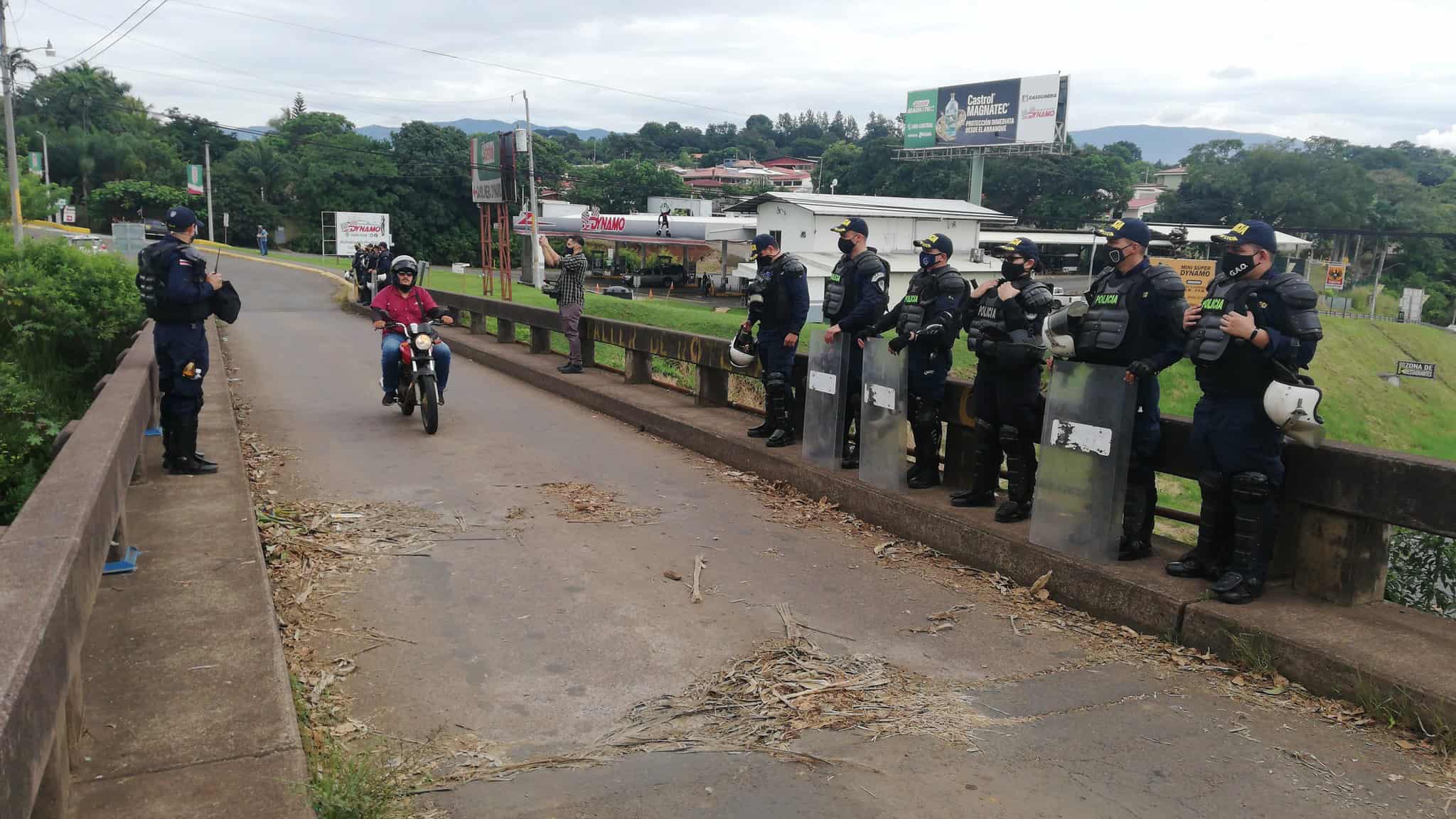The Constitutional Chamber of the Supreme Court on Tuesday condemned the Costa Rican government for refraining from lifting the roadblocks in recent weeks, in which protesters demonstrated against a proposal to negotiate with the International Monetary Fund (IMF).
The court unanimously accepted a writ of habeas corpus against the Ministry of the Presidency and the National Police for not removing those who impeded circulation on at least 40 sections of roads throughout the country.
According to the ruling of the constitutional chamber, the demonstrations called by the self-proclaimed Movimiento Rescate Nacional (National Rescue Movement) sought to hinder the country’s road infrastructure and access to seaports.
“Such intention cannot be considered to constitute a legitimate aspect of freedom of expression, since its ultimate purpose is not the expression of an opinion or the transmission of a message, but rather the generation of significant damage to public order,” said judge Paul Rueda Leal, author of the ruling.
The roadblocks broke out on Wednesday, September 30, in rejection of a government proposal to negotiate an agreement with the IMF, which was criticized for its emphasis on temporary tax increases rather than reducing spending.
Although the proposal was withdrawn on October 4, the movement maintained demonstrations.
The Minister of the Presidency, Marcelo Prieto, said the government has acted “with diligence” in the face of the blockades. He defended the work of the police and stressed that it has emphasized a path of dialogue with protesters.
“Since September 30, when this movement began, until yesterday (Monday), 115 interventions have been carried out to lift as many blockade points. There are 100 policemen wounded, beaten, injured in these efforts,” Prieto said in a statement.
The same movement organized a march in the capital on Monday that ended in a violent confrontation with the police in front of the Presidential House, culminating in the use of tear gas to disperse protesters.
Costa Rican President Carlos Alvarado and the president of the Legislative Assembly, Eduardo Cruickshank, called for a national dialogue that will begin Saturday in search of an agreement to face the country’s fiscal crisis.
The country closed 2019 with a fiscal deficit of 6% of GDP, which threatens to reach 9.7% of GDP as a result of the containment measures for the covid-19 pandemic.






